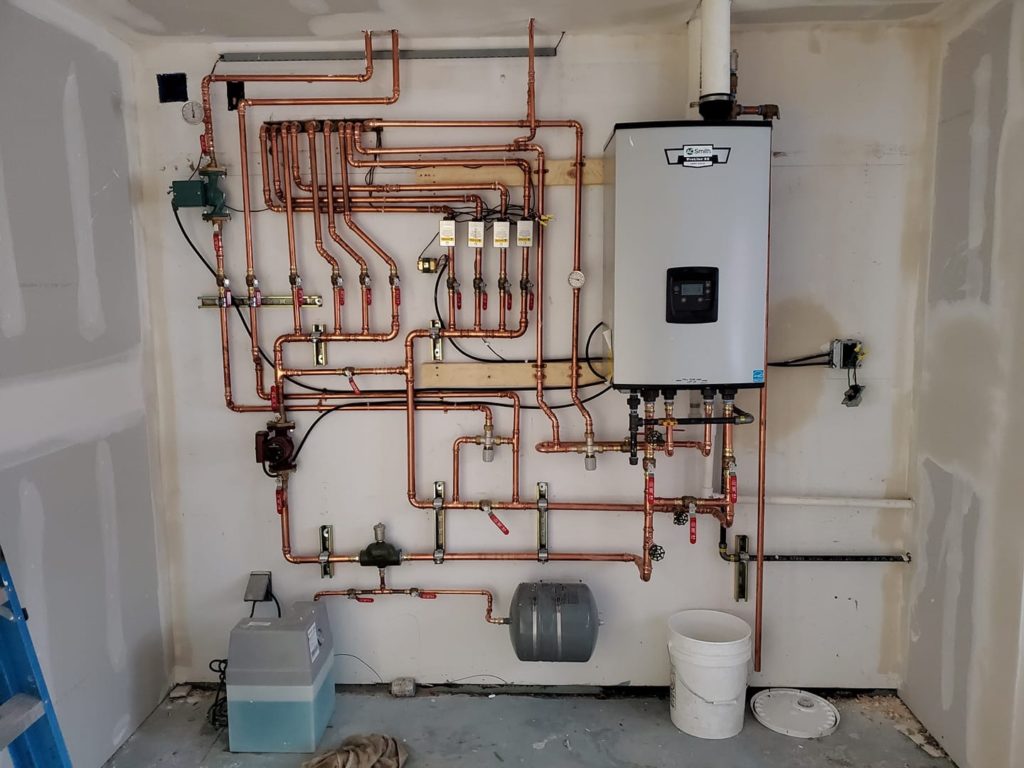Certified Gas Leak Repair for Your Safety and Assurance
Certified Gas Leak Repair for Your Safety and Assurance
Blog Article
Complete Overview to Water Heating UnitInstallation and Replacement
Comprehending the complexities of hot water heater installation and substitute is critical for homeowners seeking to make sure effectiveness and dependability in their hot water supply. From picking the ideal kind and size to executing a seamless setup process, numerous elements should be thought about to stay clear of usual mistakes. This overview will provide you with the needed steps and understandings to browse the complexities of this home renovation task, while also emphasizing essential upkeep practices that can lengthen the life of your system. As you explore these aspects, you might discover yourself reassessing your present configuration and determining areas for improvement.
Kinds Of Hot Water Heater
When thinking about hot water heater setup and substitute, it is vital to understand the various kinds of hot water heater readily available in the market. The most usual types consist of storage tank hot water heater, tankless water heating units, heat pump water heaters, and solar water heaters.
Container water heating units are typical systems that store a specific volume of hot water, making them easily offered when needed. In contrast, tankless water heating systems supply hot water on demand, getting rid of the need for storage space.
Heatpump water heaters use electricity to move heat from the air or ground to warm water, using considerable power financial savings yet requiring even more space and certain setup problems. Last but not least, solar hot water heater harness solar energy to heat water, providing an environmentally friendly option with possible lasting price savings, although they frequently require a back-up system for over cast days.
Understanding these options ensures informed choices regarding installation and replacement, catering to particular demands and preferences.
Choosing the Right Dimension
Selecting the proper size for a hot water heater is vital to ensure optimum efficiency and efficiency. An unit that is as well little will struggle to satisfy family demands, resulting in irregular warm water schedule and boosted power usage. On the other hand, a large hot water heater can lead to unneeded power waste and greater energy bills.
To identify the best dimension, consider the house's optimal warm water use. This can be determined based upon the number of owners and their regular warm water demands. A household of four might call for a water heater with a capacity of 50 to 80 gallons, depending on the usage patterns, such as simultaneous showers and laundry.
Furthermore, assess the recuperation rate, which measures how promptly a heater can replenish warm water after it has actually been utilized. For tankless designs, focus on the flow price, gauged in gallons per min (GPM), to ensure it fulfills the house's simultaneous need.

Setup Process Review

Following, the old device must be separated and gotten rid of, making sure to adhere to neighborhood codes and guidelines concerning disposal. When the old device is out, the brand-new water heater can be positioned in area. This action includes connecting the water supply lines, making certain that all installations are protected and leak-free.
After establishing water connections, it's important to connect the power supply, whether electrical or gas, complying with the maker's instructions diligently. When all connections are made, the system must be filled with water, and the power can be turned back on. It's important to examine for leaks and ensure the water heating unit is functioning properly before finishing the installation procedure.
Common Installation Mistakes

Another regular error is neglecting to adhere to neighborhood codes and laws. Stopping working to stick to these criteria can not just lead to security hazards but may also result in pricey penalties or the demand for pricey reinstallation.
Incorrect pipes links are also a widespread error. Falling short to safeguard links or making use of the wrong type of fittings can result in leakages and water damages. Furthermore, ignoring the relevance of a correct drainpipe frying pan can cause considerable water damages if leakages do take place. Lastly, insufficient insulation of pipelines can cause heat loss, minimizing efficiency. By preventing these typical setup errors, property owners can guarantee their hot water heater runs safely and efficiently, optimizing efficiency and longevity.
Upkeep Tips for Durability
Appropriate maintenance of a water heating unit is crucial for its long life and optimum efficiency. Regular inspections and servicing can go to these guys prevent pricey repair services and extend the device's lifespan. Begin by examining the temperature setup; it should typically be established between 120 ° F and 140 ° F for optimum power efficiency and security.
Every 6 months, purge the storage tank to remove sediment buildup, which can harm home heating effectiveness and trigger corrosion. To do this, shut off the heating system, connect a hose to the drain shutoff, and allow the water run until it is clear.
Anode rods need to be evaluated yearly and changed when they are worn away. These poles help stop storage tank deterioration by attracting harsh components in the water.
Additionally, check the pressure safety valve routinely to guarantee it is working correctly. This shutoff is important for avoiding too much stress accumulation within the container.
Lastly, consider arranging a specialist maintenance check every couple of years for complete assessments and servicing. By sticking to these maintenance tips, homeowners can considerably enhance the efficiency, security, and life expectancy of their hot water heater, making certain reputable warm water for years ahead.
Conclusion
In final thought, proper installation and upkeep of water heating units are critical for guaranteeing performance and durability. By comprehending these important elements, home owners can accomplish a reliable warm water supply while minimizing prospective issues connected to water heating unit operation.
Recognizing the intricacies of water heating system installation and replacement is important for homeowners seeking to make certain performance and dependability in their hot water supply.Tank water heating systems are traditional systems that save a certain volume of warm water, making them easily offered when required. In comparison, tankless water heating systems supply hot water on need, getting rid of the demand for storage space. Picking a water heating unit that is either as well little or also big can lead to ineffectiveness, resulting in insufficient warm water supply or excessive power intake.
By comprehending these essential facets, property owners find this can achieve a reliable hot water supply while reducing potential problems connected to water heating system procedure. plumber Denton.
Report this page